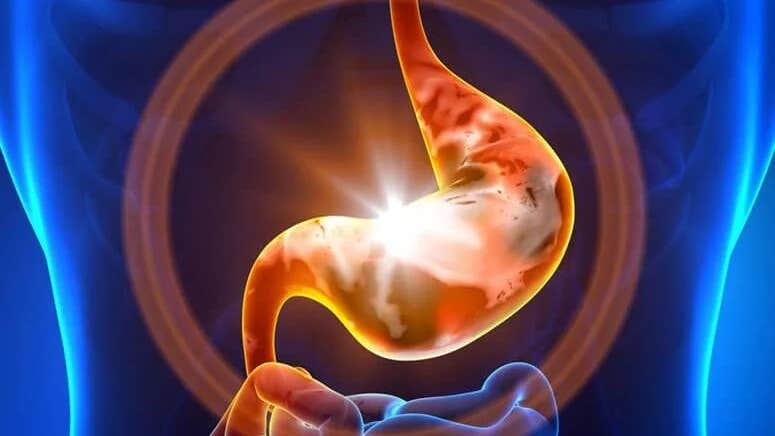Experimental weight loss procedure reduces the ‘hunger hormone’ and cuts weight
Procedure shows promise in curbing hunger and aiding weight loss by using thermal energy on the stomach lining

An innovative weight loss procedure, known as gastric fundus mucosal ablation, shows promise in curbing hunger and aiding weight loss by using thermal energy on the stomach lining. Researchers shared their findings from a small pilot study at the annual Digestive Disease Week meeting in Washington, D.C.
The procedure, which employs an endoscope—a slender tube inserted through the throat—takes less than an hour and does not require hospitalization. Matthew Kroh, a surgical endoscopist at the Cleveland Clinic who was not involved in the study, highlighted the procedure's simplicity: “The advantage of this is that it’s a relatively straightforward procedure.” Mild side effects like nausea and cramping were reported, according to one study author.
This contrasts sharply with bariatric surgery, the current gold standard for obesity treatment. Bariatric surgery involves various techniques to reduce stomach size or alter food absorption, often necessitating hospitalization and a lengthy recovery period. Many obese individuals avoid these treatments due to their invasive nature, Kroh explains.
The new procedure could eventually offer a less invasive alternative, provided its efficacy is confirmed in larger trials. Kroh remains optimistic yet cautious: “There’s potential, but I think we have to be cautious.”
The initial trial involved ten women and is still in the proof-of-concept stage. On average, participants lost nearly 8 percent of their body weight, equating to around 19 pounds over six months. This weight loss is less than what patients typically achieve with bariatric surgery or pharmaceutical treatments like the anti-obesity drug Wegovy.
However, even this modest weight loss can significantly impact health, according to Margaret Keane, a bariatric endoscopist at Johns Hopkins Hospital who was not involved in the study. She notes that such weight loss can improve conditions related to obesity, including high blood pressure, high cholesterol, and diabetes.
Related Stories
The researchers attributed the weight loss to a reduction in the hunger hormone ghrelin, which signals the brain to initiate eating. Lower ghrelin levels mean fewer hunger pangs.
While no drugs currently exist to lower ghrelin levels, doctors can target the tissue that produces the hormone. Cells in the upper stomach release most of the body’s ghrelin. The study's coauthor, Christopher McGowan, a gastroenterologist at True You Weight Loss in Cary, N.C., hypothesized that destroying these cells would result in weight loss.
This concept has precedent in bariatric surgeries that remove or bypass the stomach's upper portion, which also reduces ghrelin levels. In the new study, participants’ ghrelin levels dropped by about 45 percent—from approximately 460 picograms per milliliter to around 250 six months post-procedure. McGowan attributed this decrease to the reduction in ghrelin-producing cells.
However, the study only monitored patients for six months, leaving questions about the procedure's long-term efficacy and whether ghrelin-producing cells might regenerate. McGowan pointed out another factor that could impact hunger: scar tissue formation. As the burned tissue heals, it becomes “less stretchy, less expandable, and stiffer,” he said. This reduced elasticity means patients feel full with less food.
McGowan envisions this technique as a potential standalone treatment for obesity. It could also be beneficial for patients discontinuing Wegovy or similar drugs, who often regain weight after stopping the medication.
Keane is particularly excited about combining the ablation treatment with other nonsurgical procedures, such as endoscopic sleeve gastroplasty, which reduces stomach size by stitching its walls together. Both procedures use an endoscope, making them minimally invasive.
While it's still early days, Keane believes that a combination of these treatments could achieve "surgical levels of weight loss without the longer recovery time."
Gastric fundus mucosal ablation represents a promising, minimally invasive weight loss method that could provide an alternative to traditional bariatric surgery. With further research and larger trials, this technique could offer new hope for those seeking effective obesity treatments without the challenges of invasive surgery.
For more science news stories check out our New Discoveries section at The Brighter Side of News.
Note: Materials provided above by The Brighter Side of News. Content may be edited for style and length.
Like these kind of feel good stories? Get the Brighter Side of News' newsletter.
Joshua Shavit
Science & Technology Writer | AI and Robotics Reporter
Joshua Shavit is a Los Angeles-based science and technology writer with a passion for exploring the breakthroughs shaping the future. As a contributor to The Brighter Side of News, he focuses on positive and transformative advancements in AI, technology, physics, engineering, robotics and space science. Joshua is currently working towards a Bachelor of Science in Business Administration at the University of California, Berkeley. He combines his academic background with a talent for storytelling, making complex scientific discoveries engaging and accessible. His work highlights the innovators behind the ideas, bringing readers closer to the people driving progress.



